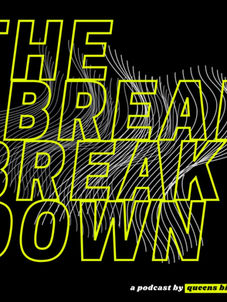
About Us
Meisner in Music is a New York City-based studio that nurtures artists to find trust in themselves and their instruments through the Meisner technique. For the full story of how our studio was created, jump here.
Our Team

Jillian Paige
Founder & Teacher
Jillian (she/her) is a second-generation Meisner teacher and designated by The Meisner Institute. Jillian received her master’s in music theatre from Oklahoma City University, her bachelor’s in classical vocal performance from Belmont University, and studied Meisner under Terry Martin (a direct pupil of Meisner’s), and Ted Wold. She recently made her Off-Broadway debut as the villainous Madame DeFarge in A Tale of Two Cities with the Village Light Opera Group and has performed with companies such as Actors Theatre of Louisville, the Nashville Opera, and Kentucky Opera. With a Certificate in Neuroscience and Voice, Jillian is passionate about helping singers maintain beautiful singing while achieving emotional freedom and impulsivity in the moment.

Interviews
with Jillian
Articles
by Jillian


Adam White
Senior Teaching Faculty
Adam White (he/him) has a Bachelors of Music Theatre from Oklahoma City University and is a graduate of the MiM Teacher Training program and Maddie Tarbox Vocal Studio's Evidence-Based Voicework Certification program. As an academic artist, Adam applies his research on mindfulness, the psychology of emotions, embodiment practices, and trauma-informed leadership in his teaching. He believes that his role as a teacher is not only to aid students in finding freedom in their work, but to find greater freedom and worthiness within themselves.

Jonathan Heller
Associate Teacher
Jonathan Heller (he/him) holds a Masters in Musical Theatre Vocal Performance and an Advanced Pedagogy Certificate from NYU Steinhardt and a Bachelors in Vocal Performance from Eastman School of Music. Jonathan has performed on the Cats National Tour and is currently touring with The Tina Turner Musical National Tour. He has been a semifinalist and finalist in the Lotte Lenya competition & is a Vocal Mentor with the National Children's chorus. A Meisner student of the Ted Wold Studio for several years, Jonathan loves sharing his love of Meisner and expertise with classical voice and dance with other singers.


Equity & Inclusion
Our Commitment to
At Meisner in Music, we acknowledge that artists of marginalized identities have helped to build and contribute to our society culturally, socially, and artistically while continuously being systematically silenced and denied the opportunities that they deserve.
We care about making sure that these groups experience an overwhelming amount of generosity and kindness to share a fraction of the opportunities that they need to be repaid. We hope that even the small contributions that we can make can be a pathway to opportunity, acceptance, and self-actualization.
We therefore believe that diversity, inclusion, and equity belong at Meisner in Music. This requires that we offer diversity, equity, and inclusion scholarships, consistently implement trauma-informed practices into our studios and work spaces, and offer affordable payment options for all artists to encourage that musicians have access to and feel welcome in our spaces.

How
Came To Be

As told by founder Jillian Paige
Choose your own adventure
As a kid, I got labeled “hyper” a lot. I grew up in a consistently messy, often unpredictable, sometimes violent environment, which manifested in pent up energy that I didn’t know what to do with. I would attend a birthday party, get too excited to be out of my own house, and accidentally break something in someone else’s. In playing with friends, I’d frequently go too hard in roughhousing and end up hurting someone without meaning to. I wanted desperately to be a good kid but started to internalize that my impulses weren’t like other people’s - they were too much and too harmful.
I started to push the dark parts of myself away and only give attention to the light.
As I grew up, this infiltrated into performing. I loved playing comedic roles and making people laugh soon became one of my greatest joys. As I studied acting and singing more seriously, I didn’t let myself fully invest in powerful pieces of emotional depth, for fear of what they’d bring up in me.
I successfully pushed the dark parts of myself away and only gave attention to the light.
In 2013, I was given a role that I couldn’t turn away from. I began grad school and there dated Michael Schafer, a buoyant tenor with an unparalleled smile. After a year of dating, Michael began complaining to me about a nagging canker sore on his tongue. He finally got a long-awaited appointment with an ENT, who solemnly said that they needed to biopsy it but that he was almost positive it was cancer. It felt like my greatest nightmare was coming true.
I decided to push the dark parts of myself away and only give attention to the light.
The journey was bleak. Though there were tiny bits of hope along the way, Michael’s cancer battle was arduous and felt downhill from the start. Despite what the doctors told us, Michael and I became nearly obsessed with medical miracles, reading and trying everything that we could. We got married eight months after his diagnosis with the belief that he would get through to the other side. He died 11 days after our wedding.
Having moved to Dallas to be with Michael’s family as he got treatment, I was isolated in a city far from my loved ones with no idea how I was going to get through the rest of my life without Michael, let alone the next moment.
I had to push the dark parts of myself away and only give attention to the light.
I needed to busy myself. I had heard a little about the Meisner technique so…
...I stepped into my first Meisner class.

My teacher, Terry Martin, had studied directly with Sandford Meisner and his thoughtful, caring instruction of the Meisner technique allowed me to do three things:
safely tap into the darkness and grief
that I had been holding in and find acceptance for all aspects of myself, allowing them come into my work,
get out my analytical head
like never before, leaving no room for my technical self to judge a move before making it,
and, most importantly,
sing not only with the emotional, but the vocal freedom
that I’d been trying to drill into myself for so many years.
I was hooked and eager to share Meisner with other singers. After a year in Dallas, I moved to New York and in September of 2017, I workshopped the idea of Meisner in Music with a few friends over a month in a sweaty studio in Ripley-Grier. I had no idea what we were getting into but the idea took flight. We are now in our 9th year of classes, residing in a beautiful space in the garment district (where Meisner's family business was!), and helping singers ranging from Broadway professionals to recent college grads to find both an acting technique and a path to falling back in love with singing.














